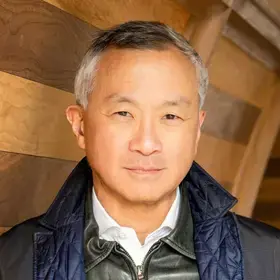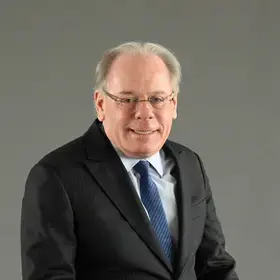Nikolas Katsimpras wanted to transition from a career in conflict to one in conflict resolution.
Born and raised in Greece, he worked as a navy officer where he says “conflict was part of the job.” He received an award from the International Institute for Humanitarian Law for his explorations of the law of armed conflict and its applications in resolving international clashes. This work, he says, planted a seed within him, and he looked to Columbia University’s M.S. in Negotiation and Conflict Resolution (NECR) program to foster its growth.
However, Katsimpras wasn’t merely looking for a new job. What he sought through the program was a paradigm shifting experience, one that would help connect him with creative and interdisciplinary opportunities. “As a student, it was certainly a transformative experience,” he says of the program and his ensuing journey from navy officer to foreign policy advisor and professor. “Now, as a faculty member [at Columbia and elsewhere], I’m actually witnessing this same phenomenon in my students.”
Katsimpras carved out his own niche. Not only is he a senior fellow at the Hellenic American Leadership Council (HALC) and a fellow at various think tanks, he now teaches at Columbia as well as John Jay College of Criminal Justice.
We spoke with Katsimpras at a cafe near John Jay College, and his passion for the program and its curriculum cut through the ambient clamor.
What brought you to NECR in the first place?
When I moved [to New York City] in 2010, I was looking for a graduate program that would be able to help me with my transition to a new career. I came across NECR. I read through the curriculum, I attended an info session, I talked with [program director] Beth Fisher-Yoshida, and I thought, “This is perfect.”
There was one key point that, for me, really made it clear that I wanted to be part of a program, which was the role of reflection throughout the program. If you are to talk about something as sensitive as conflict itself, you need to take a hard look in the mirror in order to first understand your relationship with conflict. That was the selling point – the value of reflection as it pertains to self-improvement. That’s how I ended up in the program.
Can you talk a little bit about the kinds of frameworks you learn in NECR? For instance, systems thinking?
The NECR approach [to conflict resolution] is mainly based on social psychology as well as systems thinking, specifically the work of Peter Coleman. If we are to approach difficult conflicts, we need to start developing an approach that is able to embrace the different kinds of attributes that actually perpetuate this conflict. Systems thinking really helps us develop a more holistic understanding of a conflict. In terms of actually being able to shed new light on really complicated problems, the impact of systems thinking is profound as a theory and as a methodology.
How did this program advance your career?
Given its interdisciplinary and perhaps ambiguous nature, a lot of people struggle with understanding exactly what the program is giving to the students. But the idea is that you create your own path, you create your own brand, you carve out your way. This program is perfect for individuals who are extremely curious intellectually, who really want to have the flexibility to carve their own paths in life. It’s not the traditional approach to getting a job offer right after graduating.
It’s like buying a house: Instead of just buying what’s on the market, you are designing it yourself. And then when you see it, you have a different affiliation with that creation. You know every corner of it.
What is it that you’re teaching for NECR?
I’m teaching Introduction to Negotiation for graduate students. It’s an amazing group of people every time: very diverse, many visiting students, many international students. That’s the thing that I love about the School. It has a wide array of programs that you’re not going to find anywhere else and draws people who are intrinsically curious.
One thing I try to impart in my classes is that there’s no expert in negotiation. We’re all experts in negotiation. It’s part of our lives, negotiating everything from talking your way out of a ticket to negotiating with your spouse or your kids or your colleagues. It’s part of who we are. But usually, when we say negotiation, we tend to see it from a business perspective. But in the end, it’s so much more than that.
I want to emphasize – this isn’t a program where someone takes you by the hand. It’s a creative process that allows you to ultimately shape your own product, which is yourself. As a student, it was certainly a transformative experience. Now, as a faculty member, I’m actually witnessing this same phenomenon in my students.


